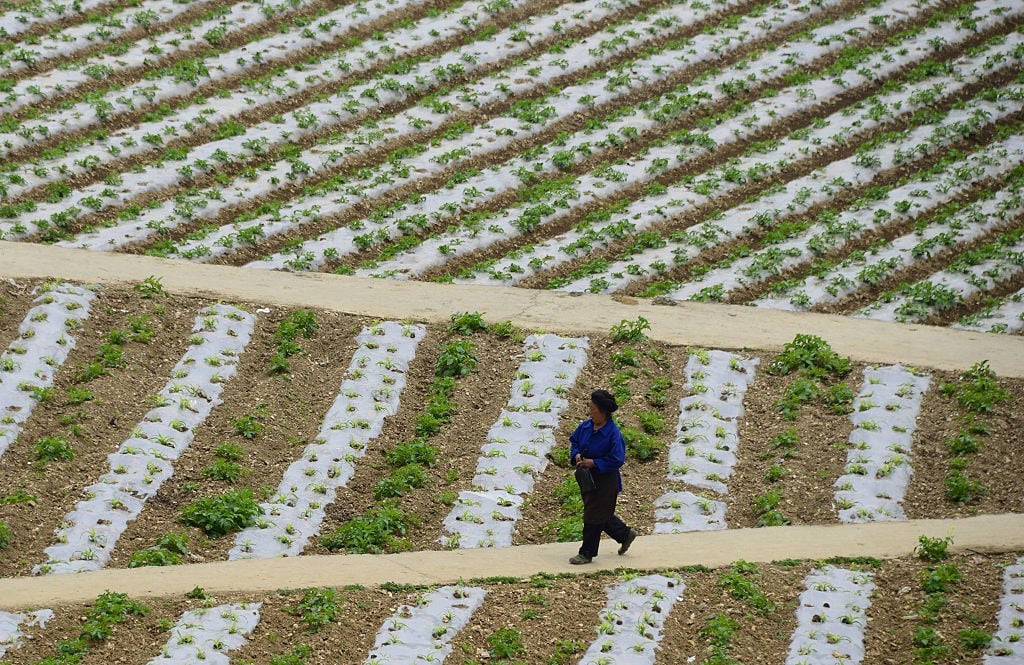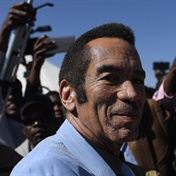
- South Africa, Ethiopia, Rwanda and the DRC are using human and organic waste to change lives.
- About 779 million people lack basic sanitation, including 208 million who "practice open defecation".
- Researchers say the bio-economy shows potential in terms of job creation for women and youth.
In South Africa, Ethiopia, Rwanda and the Democratic Republic of the Congo, human and organic waste are used to sustain food security and, by extension, create jobs.
Researchers from the Swiss Federal Institute of Technology in Zurich, Switzerland, working with partners in the aforementioned countries, are creating circular economies that use processed organic waste and human excrement as fertiliser or animal feed. As a result, farmers and industries have seen higher crop yields and more jobs created.
The institute, based at the ETH Zurich public research university, says "agricultural soils in many regions have not been receiving enough nutrients and, as a result, crop yields are declining". It notes that the declining crop yields are "a contributing factor in the malnourishment of some 250 million Africans".
According to the World Health Organisation (WHO), an estimated 779 million people in Sub-Saharan Africa lack essential sanitation services, including 208 million who still "practice open defecation".
Most of those affected live in rural areas, where people rely on an agricultural economy.
WHO regional director for Africa, Dr Matshidiso Moeti said:
Sanitation and solid waste management are problems in many towns in sub-Saharan Africa.
Researchers have found that rapid urbanisation is straining sanitary and waste infrastructure in a number of areas. Scholars typically see these two challenges as independent ones.
However, Johan Six, professor of sustainable agroecosystems at ETH Zurich, does not share this viewpoint.
"We want to establish regional circular economies in which local people reuse nutrients from faecal matter and organic waste as fertiliser for growing food or as animal feed," he said.
Melanie Surchat, a researcher at ETH Zurich, says the bio-economy - that is, the production, use, and conservation of biological resources - also offers job creation opportunities, particularly in Africa, where the unemployment rate is the highest globally.
She said:
In South Africa, pit latrines are still in use in a number of communities. Residents face considerable difficulty as the latrines quickly fill up. This increases the risk of infections linked to human waste.
The Msunduzi municipality in KwaZulu-Natal's Umgungundlovu district, was identified as the location for one of the projects.
Changing behaviour at household level
Researcher Benjamin Wilde says the ETH team works with private and public entities "to produce compost from sewage sludge and urban green waste. This is then used as fertiliser."
The municipality supplies waste, while local company Duzi Turf, provides sewage sludge, a mud-like residue which is produced during wastewater treatment. Duzi Turf also does the composting.
In the DRC, there's the Runres project in Bukavu, a city in the east of the country, lying on the extreme southwestern edge of Lake Kivu.
READ | Cape Town mall gets rooftop farm where young people grow produce
Researchers from the International Institute of Tropical Agriculture (IITA) run an education campaign encouraging residents to separate household organic waste better.
Leonhard Spaeth, a researcher on the project, says changing behaviours at a household level "is essential for getting an efficient and cost-effective process chain from waste to usable input for the agriculture."
The compost is sold to local coffee farmers who use it as fertiliser. Another gain is improved public health.
In Rwanda, Runres runs a project in Kigali that collects organic waste and feeds it to the larvae of the black soldier fly.
Wilde said the larvae eat organic waste and convert it into biomass.
ALSO READ | 28 GBV survivors are learning to farm in North West village thanks to POWA
Lastly, in Ethiopia, ETH Zurich researchers are involved in a Runres project in Arba Minch, a banana-growing city in the south.
Farmers in Arba Minch earn the least in the banana value chain.
In a bid to help the farmers earn more money from their produce, ETH Zurich and local partners have since established a factory that produces flour and banana chips as value-added products.
They also plan to grow the operations by including baby food production.
Discarded banana peels are also used to make compost and animal feed.
The News24 Africa Desk is supported by the Hanns Seidel Foundation. The stories produced through the Africa Desk and the opinions and statements that may be contained herein do not reflect those of the Hanns Seidel Foundation.




 Publications
Publications
 Partners
Partners























